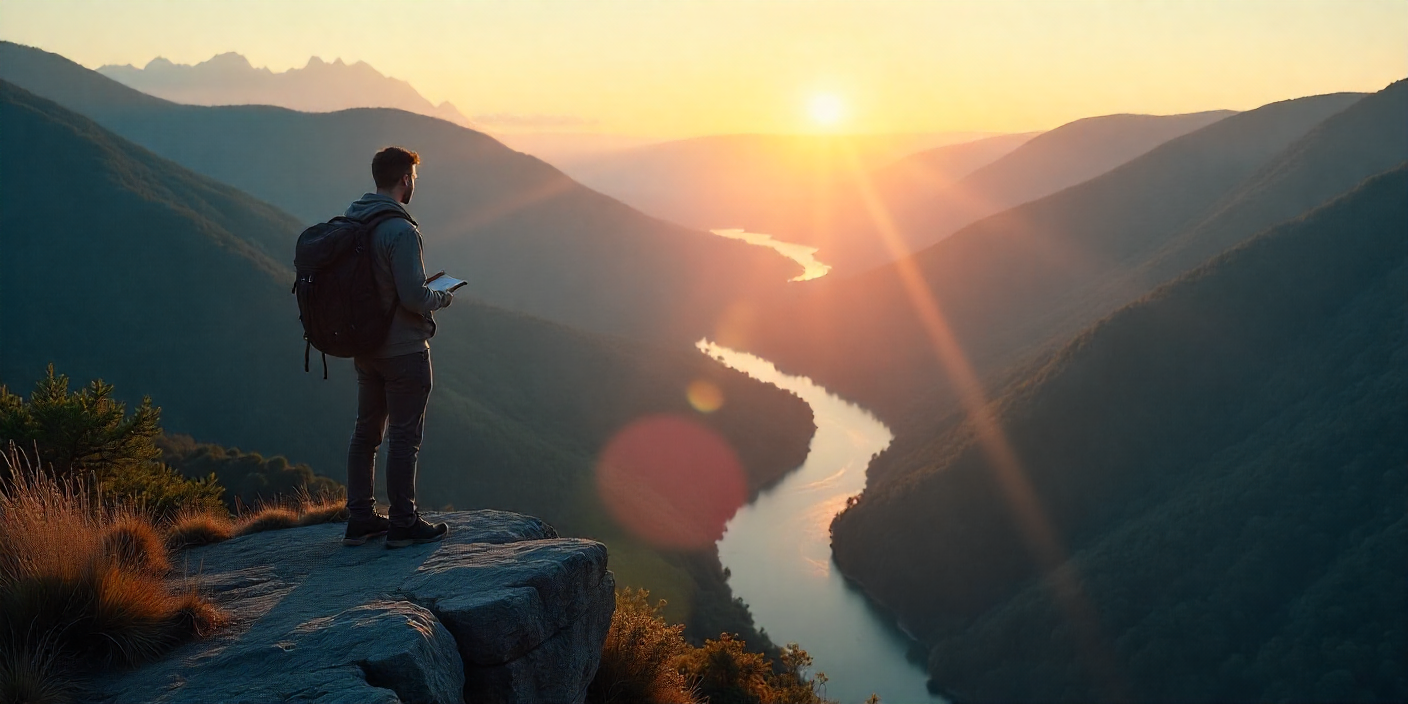Travel has always been more than just moving from one place to another. For centuries, journeys shaped cultures, expanded trade, and inspired storytelling. In the modern era, however, travel has evolved into an accessible pursuit for many, thanks to cheaper flights, digital booking platforms, and global connectivity. Yet behind the glossy Instagram photos and curated itineraries lies a deeper truth: meaningful travel is about experiencing places authentically, respecting cultures, and broadening one’s perspective.
This article explores how travel has changed, where it is heading, and how travelers can make their journeys both enriching and responsible.
The Changing Face of Travel
Decades ago, international trips were often reserved for the wealthy or adventurous few. Families might save for years to enjoy one significant trip abroad. Today, budget airlines, online deals, and flexible accommodations have democratized travel. Backpackers crisscross continents, digital nomads set up temporary homes in exotic locations, and retirees spend months exploring new regions.
But accessibility comes with trade-offs. Overtourism has strained destinations like Venice, Barcelona, and Bali, where local communities struggle with rising costs of living and environmental degradation. Responsible travel is no longer a choice; it’s an obligation for those who wish to preserve the beauty and heritage of the places they visit.
Cultural Immersion Over Checklists
Many travelers fall into the trap of racing through attractions just to “see it all.” While snapping photos at landmarks is tempting, it often reduces experiences to surface-level interactions. True cultural immersion means slowing down, learning local customs, sampling traditional foods, and engaging with residents.
Take Japan as an example. Visitors who rush from Tokyo to Kyoto may capture dazzling temples and neon-lit districts but might miss subtler aspects like neighborhood festivals, small-town tea ceremonies, or conversations with elderly shopkeepers who preserve age-old crafts. These moments create lasting memories that no postcard can replicate.
The rise of community-based tourism offers travelers opportunities to stay in village homestays, join cooking classes, or take part in agricultural activities. Not only does this foster cultural understanding, but it also ensures money flows directly to local families instead of large corporations.
The Role of Technology
Technology has reshaped the way we plan and experience journeys. A few taps on a smartphone can book flights, reserve rooms, and provide instant translations. GPS navigation reduces the anxiety of getting lost, and travel apps recommend nearby attractions tailored to personal interests.
However, technology should not dominate the journey. Constant reliance on screens can create barriers between travelers and their surroundings. The challenge lies in striking balance: using digital tools to simplify logistics while staying present in the moment. For instance, downloading offline maps allows navigation without being glued to the phone, leaving more room to observe details of streets, architecture, and daily life.
Sustainable Travel: A Growing Priority
Travel has undeniable environmental costs. Airplanes emit significant carbon, cruise ships discharge waste, and popular natural sites suffer from erosion and littering. As global awareness grows, sustainability has become central to discussions about travel’s future.
Travelers can reduce impact by:
-
Choosing direct flights where possible, as takeoff and landing consume the most fuel.
-
Supporting eco-lodges that use renewable energy and minimize waste.
-
Carrying reusable bottles and bags to cut down on single-use plastics.
-
Exploring off-season or lesser-known destinations to ease pressure on overcrowded spots.
Some countries are also introducing visitor limits and tourist taxes to protect fragile ecosystems. Bhutan, for instance, restricts the number of tourists through a daily tariff system, ensuring revenue supports cultural preservation and environmental conservation.
The Rise of Slow Travel
In a world obsessed with speed, slow travel is gaining traction. This philosophy emphasizes staying longer in one location, moving at a relaxed pace, and engaging deeply with communities. Instead of rushing through five countries in two weeks, slow travelers might spend a month in one city, frequenting local markets, learning a language, or volunteering.
This approach not only reduces stress but also enriches the journey. It creates opportunities to form friendships, develop routines, and notice details often missed in whirlwind trips. For digital nomads who combine work with exploration, slow travel offers a sustainable lifestyle that balances productivity with discovery.
Adventure Travel: Beyond the Comfort Zone
Adventure travel continues to attract those who crave adrenaline and challenge. Trekking in the Himalayas, diving in the Great Barrier Reef, or cycling through the Andes provides more than thrills—they foster resilience and respect for nature.
What’s interesting is that adventure tourism has broadened beyond extremes. For some, adventure might mean kayaking in a calm lagoon, trying street food in a bustling city, or exploring caves with a guide. The underlying theme is stepping outside comfort zones and engaging actively with surroundings.
Safety remains critical, however. Proper research, certified guides, and physical preparation ensure that adventures remain memorable for the right reasons.
Food as a Gateway to Culture
Cuisine is one of the most direct ways to experience culture. Sharing meals introduces travelers to traditions, values, and history. For example, sampling paella in Spain tells the story of agricultural practices, family gatherings, and coastal living. Likewise, Ethiopia’s communal dining rituals reflect hospitality and community bonds.
Food tourism has surged, with travelers seeking cooking classes, street food tours, and vineyard experiences. This trend benefits small producers and preserves culinary heritage that might otherwise fade under globalization’s pressures.
Health and Safety in Post-Pandemic Travel
The pandemic reshaped travel priorities. Hygiene, flexibility in booking, and health protocols now factor into decisions. Insurance coverage has become a non-negotiable item, and travelers are more aware of local healthcare systems.
At the same time, the pandemic revived interest in domestic travel and rediscovering nearby attractions. Road trips, camping, and outdoor adventures surged in popularity, proving that meaningful experiences don’t always require crossing borders.
Looking ahead, flexibility remains key. Destinations may continue adjusting entry rules, and travelers who plan with adaptability in mind will enjoy smoother journeys.
Ethical Travel: Beyond Personal Experience
Ethical travel asks difficult but necessary questions: Does my spending empower local communities or exploit them? Am I respecting local customs or unintentionally reinforcing stereotypes?
For instance, wildlife tourism raises debates. Elephant rides, once popular in parts of Asia, are increasingly criticized for animal cruelty. Similarly, visiting orphanages in developing countries, though well-intentioned, often fuels harmful industries. Conscious travelers research experiences carefully, opting for sanctuaries that prioritize conservation or programs that genuinely benefit communities.
Ethical travel also means respecting privacy. Not every colorful market or sacred ceremony is an invitation for photography. Sometimes the most powerful memories are those kept in the heart rather than on social media feeds.
Looking Ahead: The Future of Travel
Travel in the future will likely blend convenience with responsibility. Virtual reality may complement physical journeys, allowing people to preview destinations or revisit them digitally. High-speed rail and green aviation technologies promise to reduce environmental footprints.
Cultural preservation will also take center stage. As globalization blurs differences, travelers may increasingly seek destinations that protect traditions, languages, and heritage. Meanwhile, borderless work opportunities will encourage longer stays, turning travel into lifestyle rather than leisure.
Final Thoughts
Travel remains one of the most enriching pursuits a person can undertake. It opens doors to new perspectives, challenges assumptions, and nurtures empathy. Yet with these rewards comes responsibility. Each decision—from choosing airlines to interacting with locals—shapes the future of destinations and the well-being of communities.
To travel well is not to collect stamps in a passport but to return home changed: more curious, more respectful, and more connected to the world.

